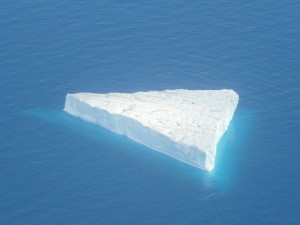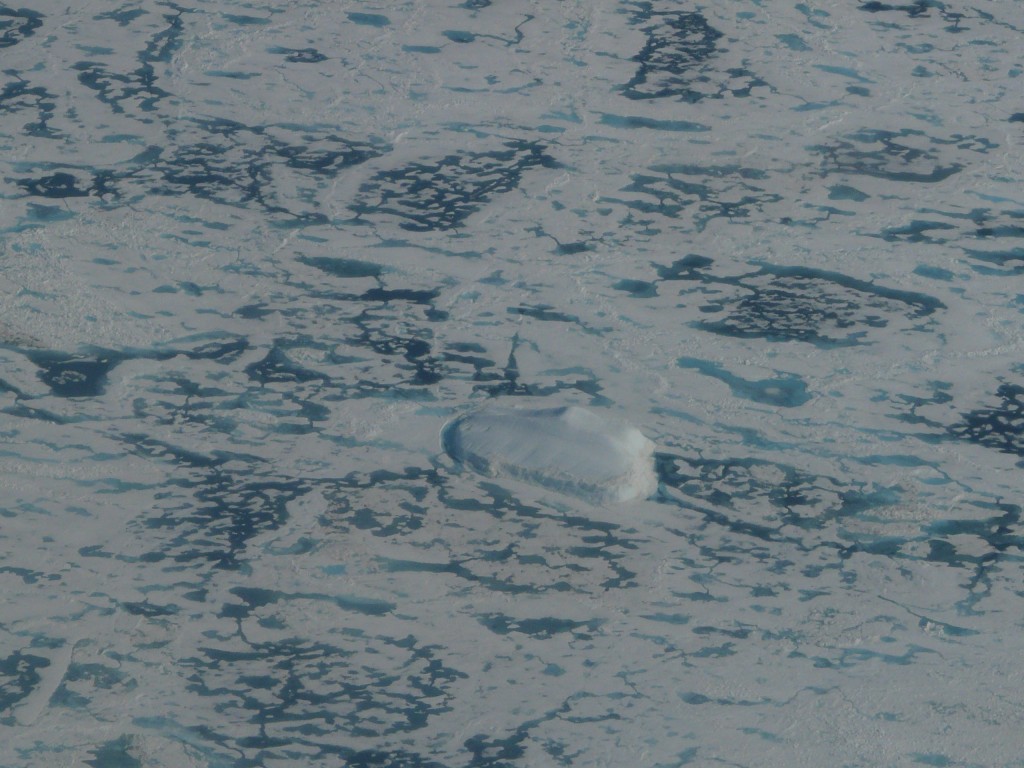Search Results for Tag: sea ice
Arctic Ice and our Weather
Apologies for a long spell of ice-blog silence, but your ice blogger is now back on the
(snow?-) ball.
The German papers today tell us to expect temperatures dropping to as low as MINUS 20 C in the course of this week. After a relatively mild winter so far, this will be a shock to the system for a lot of people. And of course, we’ll be back to the old discussion about how it can be this cold when the world is warming… Somehow people are more willing to accept that the climate is changing when the plants are all starting to come up ahead of time. But maybe the cold snap will help draw attention to a new study by Germany’s Alfred-Wegener Institute explaining the connection between the extent of the Arctic sea ice in summer and our winter weather in central Europe.
![]() read more
read more
Sea ice still on the decline
September is the month when the Arctic ice reaches its lowest exten t before the onset of winter. And it probably won’t surprise you to know that the trend has not changed. The minimum ice extent was the second lowest in satellite records after the low of 2007, according to the National Snow and Ice Data Centre, continuing what’s knows as the “decadal trend of rapidly decreasing summer sea ice”. NSIDC says this is a preliminary announcement and the sad 2007 record may yet be beaten, as conditions will still change until early October.
t before the onset of winter. And it probably won’t surprise you to know that the trend has not changed. The minimum ice extent was the second lowest in satellite records after the low of 2007, according to the National Snow and Ice Data Centre, continuing what’s knows as the “decadal trend of rapidly decreasing summer sea ice”. NSIDC says this is a preliminary announcement and the sad 2007 record may yet be beaten, as conditions will still change until early October.
There is a Greenpeace expedition on board the Arctic Sunrise currently up in the Arctic, led by campaigner Frida Bengtsson. Let me quote you her response to the latest figures:
![]() read more
read more
Heatwave at the North Pole?

(Ice off Greenland, 2009)
Sitting here in Germany during a heatwave I often think of the pleasantly cool temperatures up in the Arctic where I was just a few weeks ago. But I just read a worrying report quoting figures from the National Snow and Ice Data Report.
It seems the Arctic sea ice has reached another record low. The ice covered area is smaller than ever since satellite measurements began in 1979. The report says 88,000 square km of ice melted during June. The average is around 53,000 square km.
It’s hardly surprising that wwf is watching with concern what this means for polar bears.
In Churchhill, Canada, western Hudson Bay, the current average daytime temperature is 17° C. says WWF. The average is 12°C. The conservationists are worried that a lot of bears may not survive the coming winter, especially if the sea ice starts to form as late in the year as it did last time. Without ice to hunt on, the bears lose a lot of weight.
No respite for the Arctic sea ice

(Sea ice off Greenland 2009)
In between discussing the role of the media in communicating climate change at the Global Media Forum here in Bonn and producing radio and online stories from my Arctic trip, I have just read a press release from the Alfred Wegener Institute for Polar and Marine Research (AWI)I’d like to mention here.
It doesn’t really surprise me, but it concerns me to read that the Arctic sea ice is expected to reach a critical minimum again this summer, although probably not the shock low of 2007.
AWI scientists and a team from Hamburg University’s “climate campus” have published figures in the Sea Ice Outlook looking at the forecasts for the ice cover in September (the month when it reaches its minimum) made by a dozen international research institutes. The Hamburg team and the AWI team come to different results, using different methods, but both agree there’s an 80% probability that the ice area will be between 4,7 und 5,7 million km2. Just for comparison, between 1980 and 1990, it always covered more than 7 million km2.
Arctic summer ice latest
It’s the time of reckoning again for the Arctic ice, as summer comes to an end and the freezing seasons starts. The scientists are constantly improving their measuring and forecasting, so the results come as no real surprise.
Germany’s Alfred Wegener Institute for Polar Research puts the ice extent figure at 5.1 million km2, which is only 70 percent of the longer-term average between 1979 and 2000. It is not as low as the schocking record low of 4.1 million km2 in 2007. But the experts stress that does not mean a recovery. The slight increase this year is fresh ice, which is less thick. The AWI’s Professor Ruediger Gerdes says the proportion of thicker perennial ice has been reduced so far that summer ice cover is much more sensitive to atmospheric anomalies than it was 10 or 20 years ago.
Two ships went through the north-east passage this summer. The Arctic is changing fast.





















Feedback